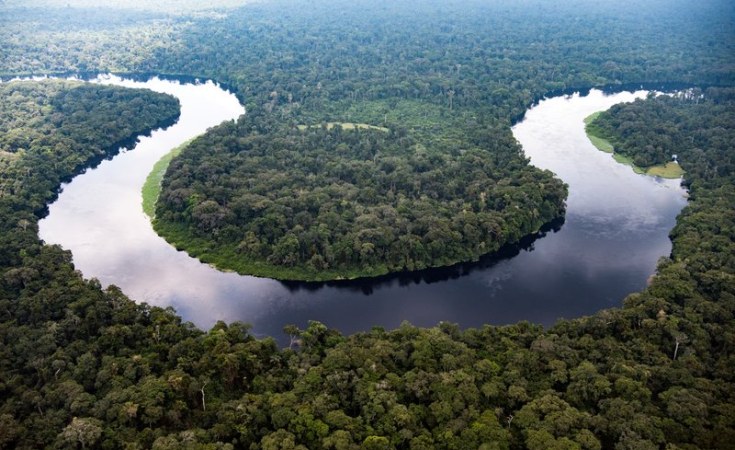The Congo Basin, often referred to as the "lungs of Africa," is home to one of the world's largest rainforests and a rich tapestry of biodiversity. It is also the ancestral land of numerous Indigenous People and Local Communities who have lived harmoniously with this ecosystem for centuries. However, these communities face significant challenges due to government policies, industrial abuse, and environmental degradation. This opinion piece explores the narratives from governments, counter-narratives from environmental activists, as well as voices of women, youth (particularly Gen Z), civil society organizations, traditional leaders, and religious organizations.
Government Narratives: Development vs. Conservation
Governments in the Congo Basin often promote development initiatives that prioritize economic growth over environmental conservation. They argue that exploiting natural resources--such as timber, minerals, and oil--is essential for national development and poverty alleviation. For instance, logging concessions are frequently granted under the premise that they will create jobs and generate revenue for public services.
However, these narratives have turned out to be false, bringing suffering to the people instead of the promise of jobs and socioeconomic wellbeing. Governments often overlook the rights and needs of Indigenous Peoples and Local Communities who protect these forests, on which they heavily rely for their livelihoods.
Governments may claim to involve communities in decision-making processes; however, many indigenous groups report being excluded from consultations or having their voices marginalized. The emphasis on economic growth most often leads to land dispossession and cultural erosion among these communities.
Counter-Narratives from Environmental Activists
Environmental activists vehemently oppose government-led development projects that threaten the integrity of the Congo Basin's ecosystems. It is obvious that such initiatives not only jeopardize biodiversity but also undermine the traditional way of life of Indigenous People and Local Communities who have basked in harmony with nature for generations, deeply rooted in a knowledge system that still carries a significant economic value to the country.
There are inspiring stories of resistance from Indigenous People and Local Communities, fighting against deforestation, degradation and land grabbing. A case in point is of grassroots movements led by women who have emerged to protect sacred sites and advocate for sustainable practices that honor their ancestral connections to the land. These activists emphasize that preserving forests is not just an environmental issue but also a matter of social justice.
Voices of Women: Guardians of Tradition
Women in Indigenous and Local Communities play a crucial role in safeguarding cultural heritage and natural resources. They are often responsible for gathering food, medicine, and materials necessary for daily life. Their intimate knowledge of forest ecosystems positions them as key players in conservation efforts.
In many cases, women have taken on leadership roles within their communities to advocate for their rights and those of future generations. Initiatives aimed at empowering women through education and access to resources have proven effective in fostering resilience against external pressures.
Youth Perspectives: Gen Z's Call for Action
The younger generation--particularly Gen Z--has emerged as a powerful voice in advocating for environmental justice within the Congo Basin. With access to social media platforms, they mobilize support both locally and globally to raise awareness about issues affecting their communities.
Gen Z emphasizes intergenerational equity; they demand accountability from governments regarding climate change impacts on their futures. Many young people are engaging with traditional leaders to bridge generational gaps while advocating for innovative solutions that blend modern technology with traditional ecological knowledge.
Civil Society Organizations: Catalysts for Change
Civil society organizations play a pivotal role in amplifying community voices while holding governments accountable. These organizations work tirelessly to document human rights abuses related to land grabs or resource extraction projects affecting Indigenous People and Local Communities.
They facilitate dialogues between communities and policymakers while providing legal support to those facing eviction or intimidation by corporate interests. By fostering collaboration among various stakeholders--including traditional leaders--they help build coalitions that advocate for sustainable development practices rooted in respect for human rights.
Traditional Leaders: Custodians of Cultural Heritage
Traditional leaders hold significant influence within indigenous communities; they serve as custodians of cultural heritage and mediators during conflicts over land use or resource management. Their endorsement is crucial when advocating for community rights at higher levels of governance.
Many traditional leaders recognize the importance of balancing modern development with cultural preservation; they often call upon governments to respect customary land rights while promoting sustainable practices aligned with community values.
Religious Organizations: Advocates for Justice
Religious organizations also contribute significantly by framing environmental stewardship as a moral imperative grounded in spiritual beliefs about creation and care. They mobilize congregations around issues impacting local communities while promoting ethical consumption patterns among believers.
Through advocacy campaigns focused on climate justice or biodiversity protection initiatives tied closely with faith-based teachings about stewardship over creation, religious groups amplify calls for action against destructive practices threatening both people's lives and ecosystems alike.
Conclusion: A Collective Path Forward
The narratives surrounding indigenous peoples and Local communities living in the Congo Basin reveal a complex interplay between government ambitions, activist resistance, community resilience--and ultimately--a shared vision toward sustainability rooted deeply within diverse cultural contexts across generations.
To forge a collective path forward requires recognizing all voices involved--from women leading grassroots movements advocating change--to youth demanding accountability from those wielding power over natural resources--traditional leaders guiding their people through turbulent times--and civil society organizations working tirelessly behind-the-scenes ensuring everyone has access equitable opportunities without compromising ecological integrity along this journey together towards justice!


